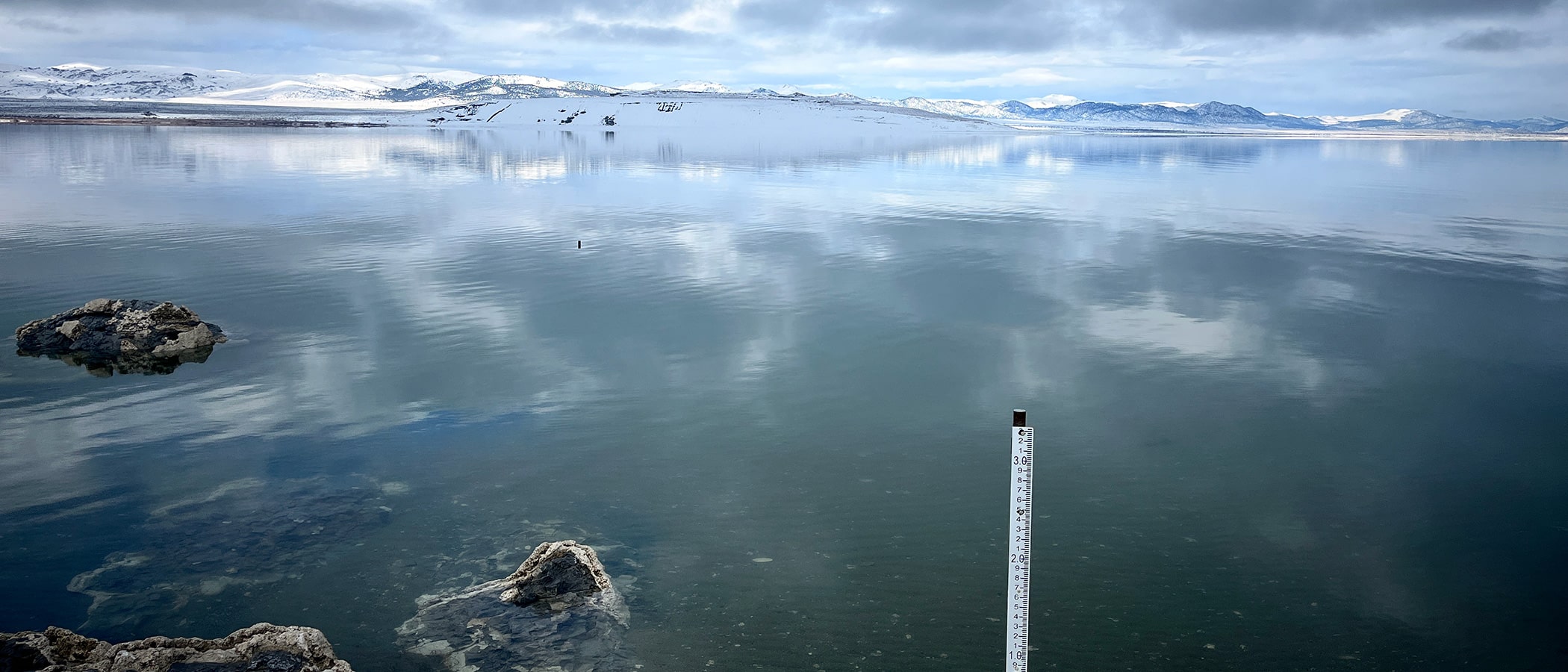

Nora starts her article on page 20 with the classic John Steinbeck quote: “…it never failed that during the dry years the people forgot about the rich years, and during the wet years they lost all memory of the dry years. It was always that way.”
Working on this issue of the Mono Lake Newsletter it occurred to me that the same could be said for the stream diversion rules that currently govern how much water the Los Angeles Department of Water & Power can export from the Mono Basin each year.
The current rules have no memory of the wet years or the dry years. They cannot take into account the need to preserve Mono Lake’s rise during wet years and so they allow the lake to drop back to dangerously low levels during droughts. In spite of being developed to restore the lake, they don’t remember how low the lake can get during the dry years and so they don’t take advantage of the wet years to minimize the losses.
Steinbeck was writing in a different time. I think we are starting to remember. Everyone I’ve talked to this winter remembers last winter acutely. It’s almost the answer to any greeting: “How are you?” “Good! Glad for an easier winter. This time last year we were so exhausted, and the avalanches hadn’t even happened yet!” But if you chat for a few minutes, people also clearly recall the droughts, and fires: “I would actually be okay with a couple more snowstorms, to be honest. Just to be safe.”
We need to build memory into the stream diversion rules too. We need a system that will allow Mono Lake to keep rising because it takes into account how important the wet years are and has a mechanism for preserving the lake’s rise after big winters. We need the rules to prevent the lake from dropping all the way back to critically low points.
In the pages that follow you’ll see a concept the Committee has been developing to improve the diversion rules so they can remember the wet years and dry years, and protect Mono Lake accordingly.
Top photo by Maureen McGlinchy. Newsletter cover photo courtesy of David J. Gubernick.
